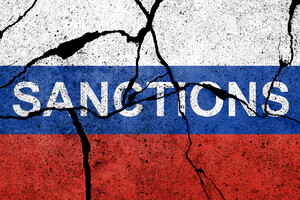However, the ultimate goal of the FATF is not so much the fight against terrorism as the fight against money laundering.

In proposals to strengthen sanctions against the United States, Europe and The world against Russia and Belarus, sponsored by the Ermak-McFaul International Working Group, has called for Russia to sponsor terrorism and its armed forces to be a terrorist organization to put Russia on the FATF's Black Action Task Force. The authors argue that this should limit Russia's financial cooperation with other partners. Unfortunately no. Yulia Samaeva, editor of the economic department ZN.UA – “Plan to strengthen sanctions against Russia. Ukrainian version” writes about this.
The ultimate goal of the FATF is to combat terrorism rather than money laundering. Countries are included in the FATF's “black list” based on criteria which show that the country does not make enough effort to be financially transparent, for example, it can conduct transactions anonymously or it is allowed not to specify the ultimate owner of the asset. In general, being blacklisted is not a sanction; Yes, investors will strain (if they haven't strained so far), and some banks will turn up their noses and apply additional checks (which, hopefully, they already do). But actually getting on the “black list” is like coming to a black tie party in pajamas: it's inconvenient, but you may not be kicked out. Russia, by the way, was already on that list in the early 2000s and somehow survived.
Read also: Oil and gas sanctions against Russia, proposed by Ukraine, will only prolong the war
With other materials Yulia Samaeva can be found at .




